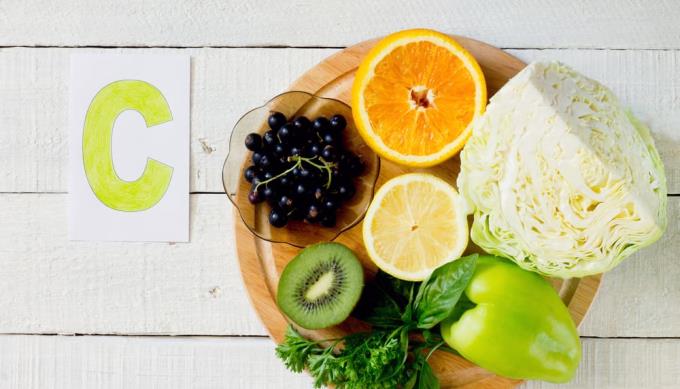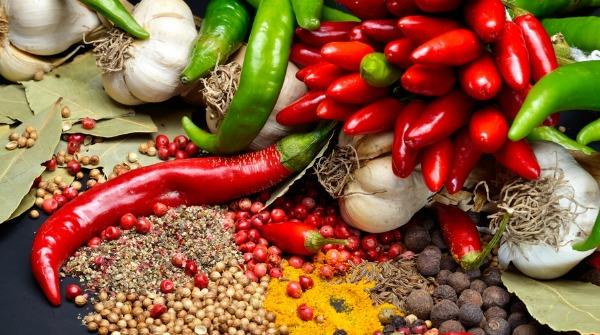Ways to determine an infants caloric needs

Learn how to determine your baby’s caloric needs, including the calories in breast milk and formula, to ensure your infant gets the right nutrition for healthy growth.
Children with nosebleeds are a fairly common problem in preschool and grade 1. In addition to being equipped with first aid knowledge, you also need to know what a nosebleed child should eat and what foods to avoid. .
Although most nosebleeds or nosebleeds in children are not life-threatening, it is terrifying you and your baby. It is very important to properly stop bleeding and treat nosebleeds right away. However, care is also needed after that. You already know what your baby has nosebleed should eat and what to avoid? The following information will help you answer this question.
Nosebleeds or nosebleeds is a condition in which the lining of the nose is damaged and the blood vessels are broken, causing bleeding inside the nose. Nosebleeds in children are very common and can be caused by causes such as vitamin C deficiency in a child's body, a habit of picking up the nose too hard or a dry, cold weather that makes a dry nose easy to peel. bleed.
What should a nosebleed eat to prevent bleeding and improve health? This is the question of many parents when they have young children. Not only in children, but adults also need to supplement foods containing the following vitamins and minerals to protect body health after a nose bleed:

You need to provide adequate vitamin K for your baby with nosebleeds. This vitamin will ensure normal blood clotting. Your baby is at higher risk of vitamin K deficiency if he has liver, bile, heartburn or celiac disease in children . The main source of vitamin K is from green vegetables. You can supplement your child with a meal rich in green vegetables such as:
Spinach
Kale
Basil
Broccoli
Cabbage
Asparagus
What should a child with nosebleed eat? Please answer that is the food rich in potassium. Because the appearance of this trace mineral in daily meals will help regulate blood circulation. Without potassium, children are at high risk of dehydration, tissues in the body, especially capillaries in the nose become dry, dehydrated. Mother can add potassium to the baby every day through meals containing lots of fruits, vegetables, foods such as bananas, avocados, tomatoes, yogurt, fish, clams, carrots ...

One of the most common causes of nosebleeds in children is a lack of vitamin C. This vitamin C plays an important role in reducing the risk of nosebleeds. Vitamin C has the function of preventing Scurvy or folk also known as "ghost bite", a disease that causes heavy bleeding in organs such as root and nose bleed. Vitamin C is also a factor that enhances the strength of blood vessels, limits rupture when there is a strong impact. You need to give your baby about 75 - 90mg vitamin C per day. The rich source of vitamin C can include:
Bell peppers, topping the vitamin C-rich food list
Guava
Citrus fruits, tangerines, and grapefruit
Succulent fruits like strawberries, blueberries ...
However, you need to consider adding vitamins to your baby with oral inflammation .
Iron deficiency leads to anemia and many other related disorders, making the body more prone to bleeding. Therefore, it would be a big mistake to ignore this micronutrient when it comes to what to eat nosebleeds. In addition to red meats such as goat meat, beef, lean meats, and seafood such as shrimp and cockles, you can also provide your baby with iron from beans, whole grains or molasses.
In addition to providing good food for your baby, you also need to know what to avoid to minimize the bad complications of a nosebleed.

You need to avoid giving your child foods that contain a lot of pepper, chili, mustard, onions ... because their nature is to cause heat in the body, the easier it is to damage the structure of the lining of blood vessels. Some types of fruit with heat such as longan, lychee, mango, plum, na (custard apple) ... should also be avoided.
If you are wondering what your child should have with nosebleeds to avoid eating, these are fried foods that contain a lot of fat. The reason is that this type of food has a high amount of saturated fat, making the body's immune system weak, making it difficult to heal.
Coffee and soft drinks are two of the many beverages that are high in stimulants. They not only affect the heart, blood vessels, blood pressure, the risk of obesity in children, but also increase the number of nosebleeds.
If you already know what your child needs to eat and what to limit, apply the tips above to help prevent and improve your baby's health after a nose bleed.
Learn how to determine your baby’s caloric needs, including the calories in breast milk and formula, to ensure your infant gets the right nutrition for healthy growth.
Discover the top 5 smartest dog breeds in the world, including Border Collie, Poodle, German Shepherd, Golden Retriever, and Doberman Pinscher. Learn about their unique traits and why they are considered the most intelligent dogs.
Discover 7 nutritious and delicious ways to cook egg porridge for babies, including recipes with cheese, pumpkin, tomato, and more. Learn how to prepare baby-friendly egg porridge with our expert tips.
After a series of medical measures they obtained a complete human vascular system profile.
Watermelon is one of the fruits that many people love, not only cheap but also delicious, nutritious and refreshing in the summer. To get delicious watermelon pieces, show off your housewives, your artistic talents to cut beautiful pieces of watermelon.
aFamilyToday Health - The digestive system and body in each baby is different. Parents need to recognize notes to deal with when babies have a food allergy!
Babies need many factors for perfect development. aFamilyToday Health shares with parents things to keep in mind when babies are 8 weeks old so that parents can take care of their babies the best!
Babies need many factors for perfect development. aFamilyToday Health shares with parents things to keep in mind when babies are 18 weeks so that parents can take care of their babies the best!
Babies need many factors for perfect development. aFamilyToday Health shares with parents things to keep in mind when babies are 28 weeks old so that parents can take care of their babies the best!
Babies need many factors for perfect development. aFamilyToday Health shares with parents things to keep in mind when babies are 32 weeks old so that parents can take care of their babies the best!








